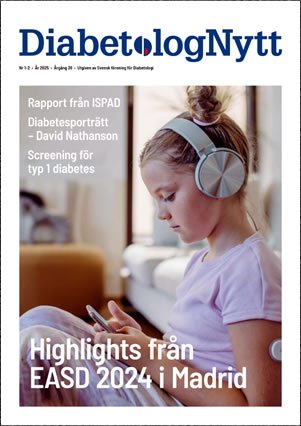Women with pre-existing diabetes who become pregnant can safely take the basal insulin detemir (Levemir, Novo Nordisk), show the results of a new study called EVOLVE.
”In pregnant women with pre-existing diabetes, insulin detemir was not associated with excess risk of major congenital malformations, perinatal, or neonatal deaths compared to other basal insulins,” reported study lead Elisabeth Mathiesen, MD, from the University of Copenhagen, Denmark, at the virtual European Association for the Study of Diabetes (EASD) Annual Meeting 2020.
Session moderator Alexandra Kautzky-Willer, MD, from the Medical University of Vienna, Austria, said this was a reassuring real-world study confirming the safety of insulin detemir in diabetic pregnancies.
”In addition, somehow it also confirms the safety of glargine (Lantus, Sanofi), which was used by the majority of the comparison group — both are long-acting insulin analogs,” she noted.
However, Kautzky-Willer pointed out that the study was observational, and to prove definitive safety in pregnancy, randomized controlled trials (RCTs) are needed.
”RCTs were performed previously in smaller groups of women with type 1 diabetes showing that detemir is as well-tolerated as intermediate-acting basal insulin regarding perinatal outcomes and safety,” she said.
And ”there is an ongoing RCT on degludec, the new[er] long[er] acting insulin of Novo Nordisk, and a small group of women included in the comparison group today were on this [newer] analog.”
Large Cohort of 17 Countries From Europe and Asia
Women with pre-existing type 1 or type 2 diabetes are at a two- to fourfold increased risk of perinatal complications, or having a baby with severe congenital malformations, or neonatal death, compared with women who do not have diabetes, Mathiesen explained.
Strict glycemic control with appropriate diet, use of insulin, and if necessary, antihypertensive treatment is the cornerstone of diabetes management to prevent pregnancy complications, and in Europe, most women with pre-existing diabetes are treated with insulin analogs before and during pregnancy. More recently, the use of insulin pumps is growing in this patient population, as is the adoption of continuous glucose monitoring.
But data have been limited on the effects of basal insulins, such as detemir, on outcomes in such pregnancies.
In view of this, the EVOLVE study, sponsored by Novo Nordisk, aimed to examine the risks in mothers with pre-existing diabetes (type 1 or type 2 diabetes) who became pregnant and used insulin detemir versus other types of insulin.
Participants were included as long as they were no more than 16 weeks pregnant and were followed via routine visits at the patient’s local study site. Overall, 93 sites across 17 countries, mainly in Europe, as well as Israel and Malaysia, were included.
Approximately 80% of the enrolled women had type 1 diabetes, and the remainder had type 2 diabetes.
Participants were a mean age of 30 years and were enrolled at a mean gestation of 8 weeks. Mean diabetes duration was 13 years. Mean A1c was 7.0% in the insulin detemir group and 7.2% in the other groups. Body mass index was comparable across groups. The vast majority of participants were receiving basal insulin as well as bolus (fast-acting or mealtime) insulin, reported Mathiesen.
Patients were treated according to routine clinical practice at the discretion of the local treating physician.
In total, 727 women using insulin detemir were compared with 730 women receiving other injectable insulin regimens (including the newer ”second-generation” long-acting insulin degludec, insulin glargine, or even older forms of insulin such as NPH, or regular human insulin). However, most of the comparison group received insulin glargine.
The primary endpoint was the proportion of pregnancies (of at least 22 weeks’ gestation) in women that did not result in any of the following events: major congenital malformations, perinatal death, or neonatal death.
Key secondary endpoints related to the mother, fetus, and infant at 1 year of age. The researchers adjusted for potential confounders using propensity score matching.
Similar Outcomes Between Groups
A total of 121 fetuses were excluded from the primary endpoint analysis due to early fetal loss. There were 57 early fetal losses in the insulin detemir group and 64 in the other group. There were 14 induced abortions due to major congenital malformations (five in the insulin detemir group and nine in the other basal insulins group).
There were no differences between in the primary outcome between women taking insulin determir compared with the other group, nor in any of the other endpoints (Table).
”When we look at the adjusted risk difference taking into account the country of origin, the duration of diabetes, whether the participant took folic acid or not, in addition to other parameters, there is absolutely no difference between groups,” reported Mathiesen.
Table. Pregnancy Outcomes
| Outcome | Insulin Detemir | Other Insulins | Adjusted Risk Difference |
|---|---|---|---|
| No major congenital malformations, perinatal, or neonatal deaths, % | 97.0 | 95.5 | –0.03 |
| Major congenital malformations, perinatal, or neonatal deaths, % | 3 | 4.5 | 0.003 |
| Major congenital malformations, % | 2.2 | 2.5 | 0.008 |
| Perinatal deaths, % | 0.8 | 1.8 | 0.002 |
| Neonatal deaths, % | 0.1 | 0.0 | — |
Study strengths include that it was designed in collaboration with the European Medicines Agency and had a large number of participants of many different nationalities across 17 countries .
”There were also very few exclusion criteria,” said Mathiesen, emphasizing how the study design reflected a real-world setting. Limitations included the fact that the trial was not randomized and women were selected from specialist diabetes sites.
”There is also the possibility that very early pregnancy outcomes that took effect prior to joining the study might have been missed,” Mathiesen said.
EASD 2020. Presented September 23, 2020. Abstract 85.
From www.medscape.com
Nyhetsinfo
www red DiabetologNytt


